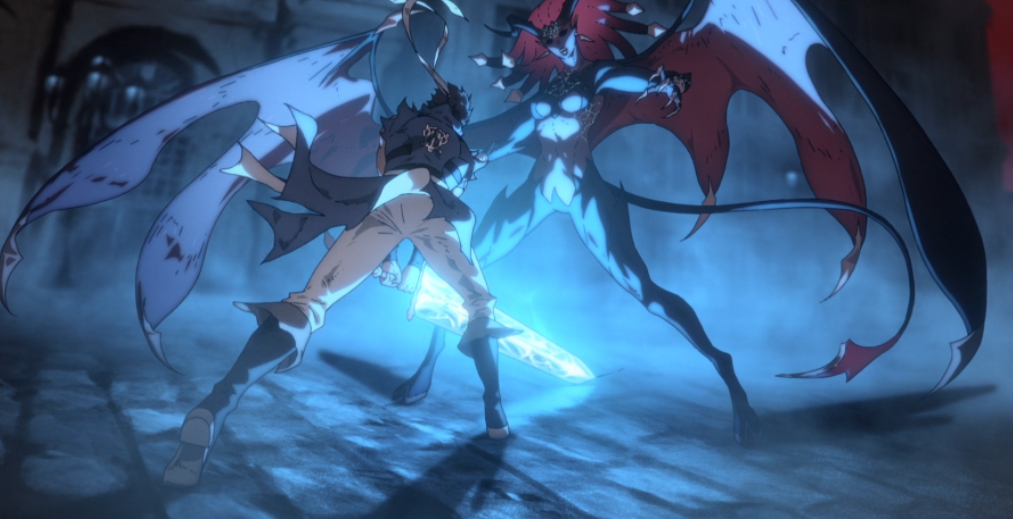Richter Belmont (Edward Bluemel) is young, but we can’t fault him for it. Over the course of Castlevania: Nocturne’s two seasons, Richter has blossomed into a hero. Yes, he’s gotten exponentially stronger. His magic has developed, his sacred whip is even more devastating, and he fights for the people next to him.
A young adult, the teenage Richter grows into an adult in front of our eyes. He does so not by destroying the strongest bad guys but by understanding his own pain and thoughtfully navigating it. Richter moves from being scared of being weak to being empowered by those who love him, leaning on them to create a cohesive team. So here is everything you need to know about Castlevania’s best boy. This article contains spoilers for Castlevania: Nocturne Season 1 & 2.
When did Richter Belmont first appear in the Castlevania games?
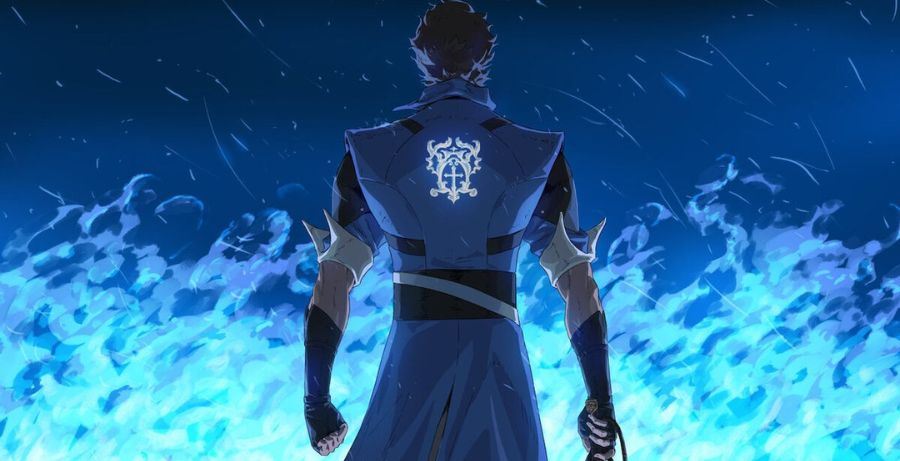
Richter Belmont made his first appearance in Konami’s Castlevania: Rondo of Blood. Later, he appeared in Symphony of the Night, Nocturne of Recollection, Moonlight Rhapsody, Grimoire of Souls, and Portrait of Ruin. In most of his appearances, he is aiding or aided by Maria Renard and Alucard, with Rondo of Blood highlighting Annette.
His appearance in the Powerhouse animation series is extremely close to how he appears in the video game. More specifically, though, his physical characteristics look closer to Ayami Kojima’s art for bishonen art for the character in Symphony of the Night and Akumajō Dracula X: Tsuioku no Yasōkyoku with the costuming elements from his other iterations.
Richter is Castlevania: Nocturne’s Best Boy.
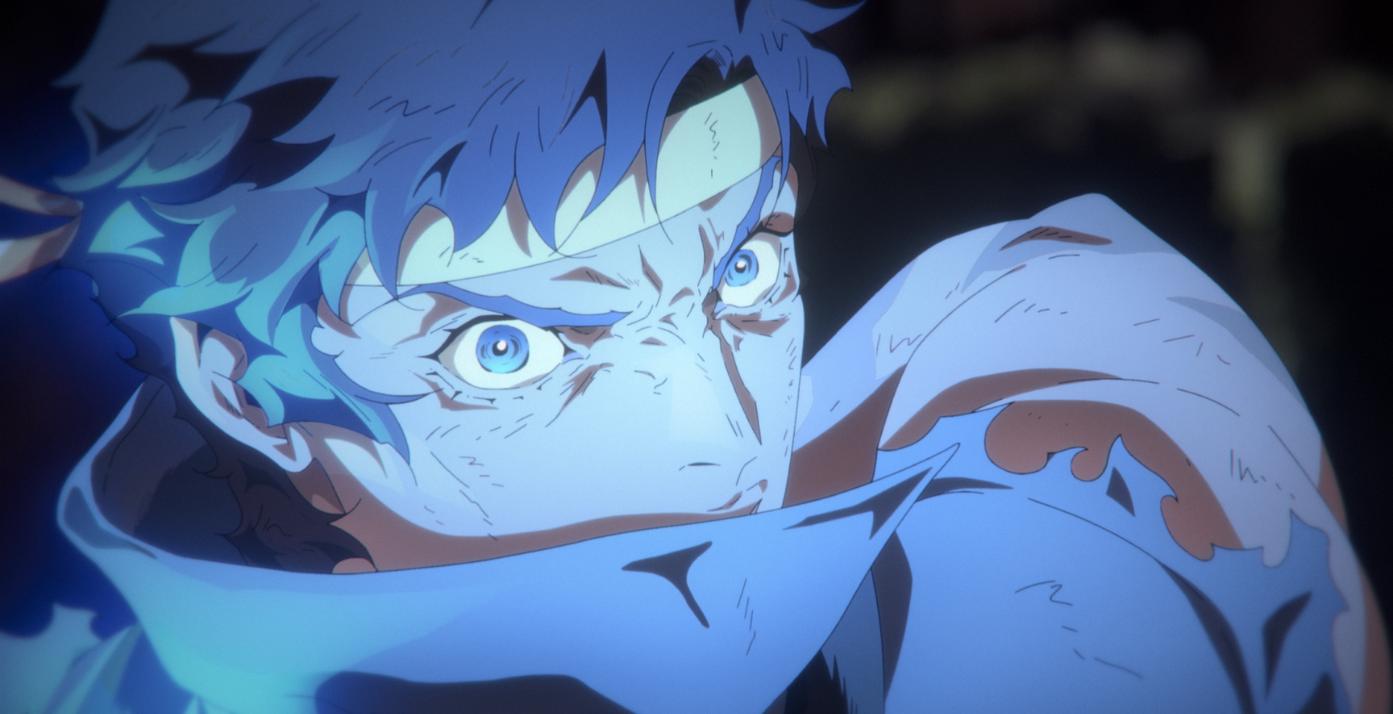
Little boy Belmont, Richter, is one of our two focal points in Castlevania: Nocturne Season 1. Along with Annette (Thuso Mbedu), Richter’s grief and tragedy shape the story and propel him to growth. A descendant of Trevor Belmont and Sypha Belnades, he is the last of the Belmonts (again). He’s alone in this world, and that sticks with him as he goes on his coming-of-age story across France to kill the Vampire Messiah.
Only left with his familial whip after he lost his magic when Olrox (Zahn McClarnon) killed his mother in front of him, Richter becomes a vampire hunter, pushed by vengeance and youthful arrogance. However, generations of Belmonts have used the Vampire Killer whip and knives alone before Sypha Belnades and Trevor Belmont had children. But his Speaker magic is a physical manifestation of his inability to process his mother’s death and confront his fear of Olrox. The first season is about overcoming that and accepting the new people in his life.
But when he’s called to fight the Vampire Messiah directly and faces the threat of losing the only remaining family he has, his “aunt” (well, more like a distant relative) Tera and his cousin (but more like his little sister) Maria (Pixie Davies), he changes. Growing from a child who—as Annette said—hasn’t had to make the tough choices that come with a hard life to a man ready to wear the Belmont crest and fight his demons, Richter isn’t just an interesting character but a strong one.
Richeter is physically stronger when he unlocks his magic again in a blaze of blue-flamed glory at the tutelage of Juste Belmont (Iain Glen). That said, he is even stronger once he confronts his vulnerabilities and grows from them. Castlevania Nocturne is truly better, with him at the center of it. Complicated and undergoing growth in a way we haven’t seen in Castlevania characters before, Richter in Season 2 is much more aware of his faults, and much more connected to the people in his life.
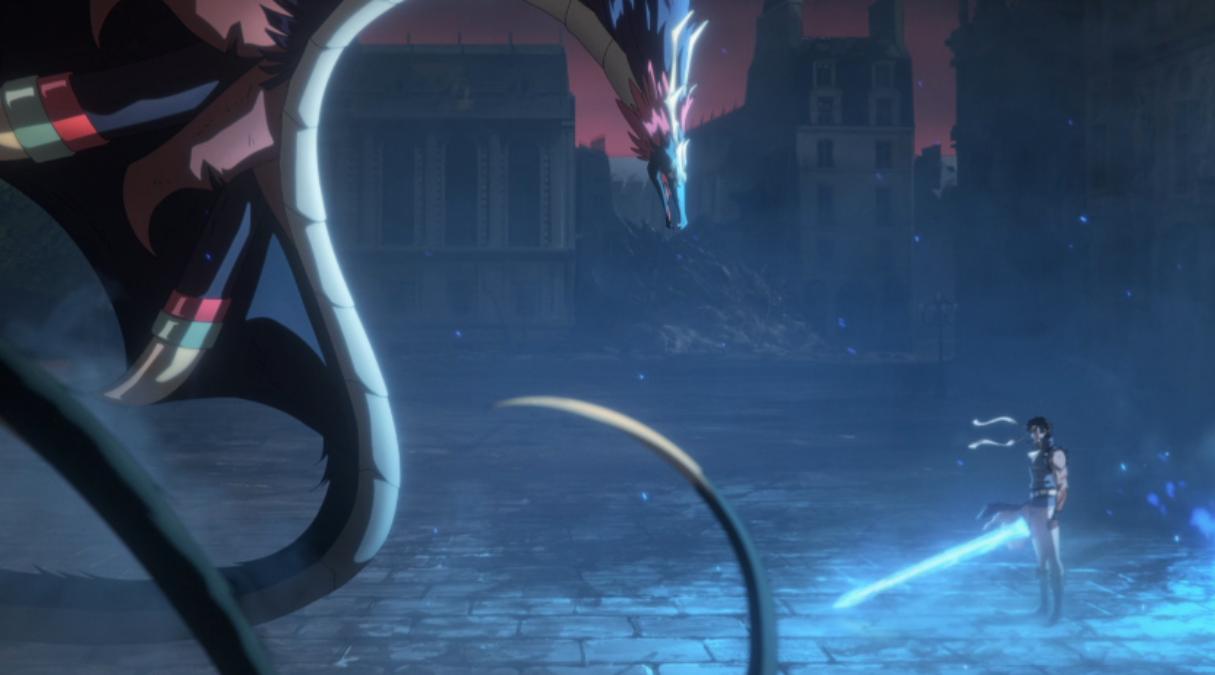
Constantly confronting his own inexperience and trauma, especially when confronted by Olrox, Richter is a stunning example of writing a male character in a multifaceted way that showcases the importance of both strength and recognizing one’s weaknesses, mainly where relationships are concerned.
In Season 2, Richter gets even more vulnerable. As he helps Alucard locate the last piece needed to stop Erzsebet from ascending to Sekhmet, he faces loss again. A Belmont in name carries a weight for him that no one can understand. When his mother died, he took it as a sign that he was meant for something great. But as the season delivers loss after loss, he begins questioning it.
The small amount of time between heading to Paris with Alucard and Annette and the final fight of Season 1 makes his development quick. However, at the end of the first season, it’s clear that Richter awoke, not just in his Speaker magic, but emotionally. Now, he holds nothing back. His vulnerability is his greatest strength as he uses it to connect more with Annette and Alucard alike. Coping with the reality that he couldn’t save Tera (Nastassja Kinski), Richter can’t collapse because Maria blames him. He has to keep going.
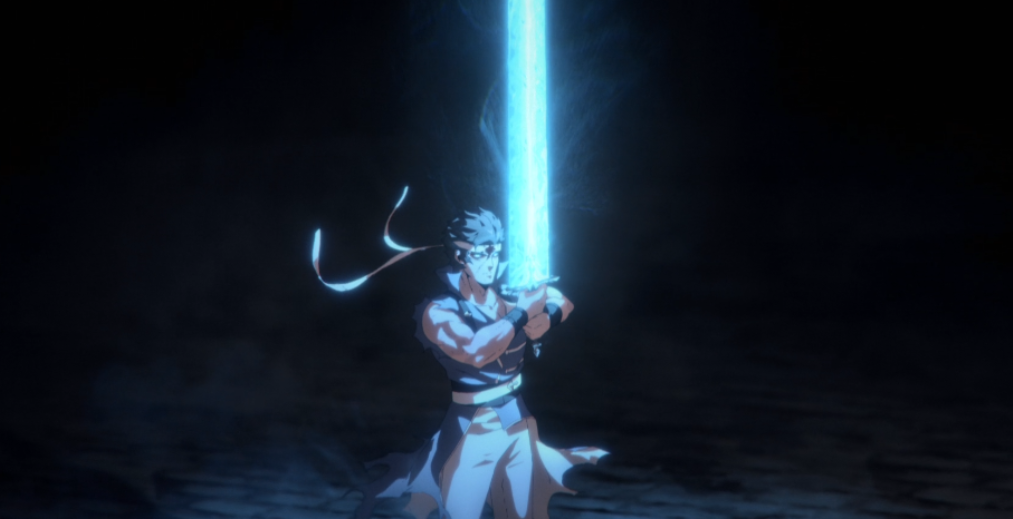
In the season’s finale, Richter is at his strongest, fighting alongside Alucard and Annette, Juste and Maria; his power finds a synergy that wasn’t possible before. He’s a part of something more significant now and doesn’t have to carry the weight of saving the world alone.
Richter Belmont also tells the audience how much carrying that weight alone is what nearly broke him. To justify his mother’s death and to let go of some of his survivor’s guilt, Richter knew he had to be someone special. The weight of needing to save the world was on his shoulders even before Erzsebet Bathory showed up.
This is not a hero’s journey; it’s a coming-of-age story for all those involved. Significantly younger than their original series counterparts, watching Richter learn to forgive himself and love others is astounding to see. The selfless person he becomes is one of the best ways to write a hero. And of that shows in his love for Annette.
Richter and Annette have always been endgame.

Castlevania: Nocturne Season 1 gave audiences small glimpses into what would be the romance between Richter Belmont and Annette. Originally engaged in Rondo of Blood, the game that serves as a heavy inspiration for this series, their romance is built on a foundation of respect. He loves her, but he also trusts her to know how to fight in the way that she can.
There are two scenes this season that capture the selflessness of Richter’s love and the limits of it. The first happens when Annette goes to the Spirit World to try and find the third piece of Skhmet’s soul. He asks Alucard if he can go with her to protect her. To which Alucard explains that he can’t because he wasn’t born worshiping the Orishas. And so Richter lays a blanket on the ground under Annette and waits by her side. No protest, just patience.
The second moment happens in the final episode of Season 2. The one thing that Richter can’t abide is Sekhmet using Annette’s body and killing her in the process. While Richter’s Speaker powers this season and last have been used to excellent action effect, as Sekhmet’s fire consumes Annette, he uses his ice to try to cool her temperature. He lets Annette fight with Sekhmet in her body, but he holds onto her for as long as possible. Even if she were to float away, he would be there, trying to hold her down.
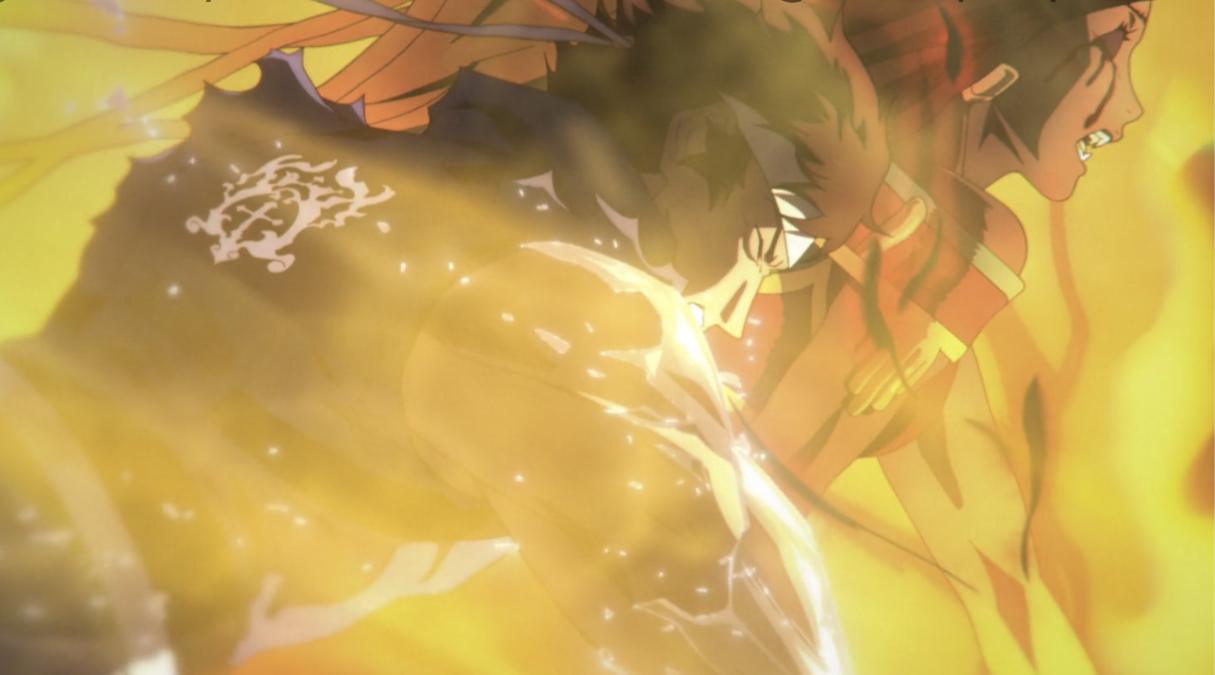
That is until it becomes too much. To defeat Drolta (Elarica Johnson), Sekhmet must consume Annette without interference. And in the process, they burn her alive. It’s at this moment that the romantic tension between the two begins to pay off, primarily because Richter says that he would deal with all of the world’s darkness so long as Annette is by his wife.
Powerfully, however, Alucard stops him, pointing out that stopping Sekhmet isn’t what Annette would want. Understanding his place and that love is about selflessness, he lets her go.
Thankfully, Annette survives, and if there is a Castlevania: Nocturne Season 3, their romance in the New World is sure to thrill, having confessed to each other. Better still, the sweetness of intimacy driven by love and not anger that we saw between Trevor and Sypha, the only time the original series shows sex as love, is present in the last moments of Nocturne Season 2. They confess to each other, they kiss, and then, we see Richter and Annette in bed together, at peace, on their way to their next adventure.
Castlevania: Nocturne Seasons 1 & 2 are streaming now on Netflix.

